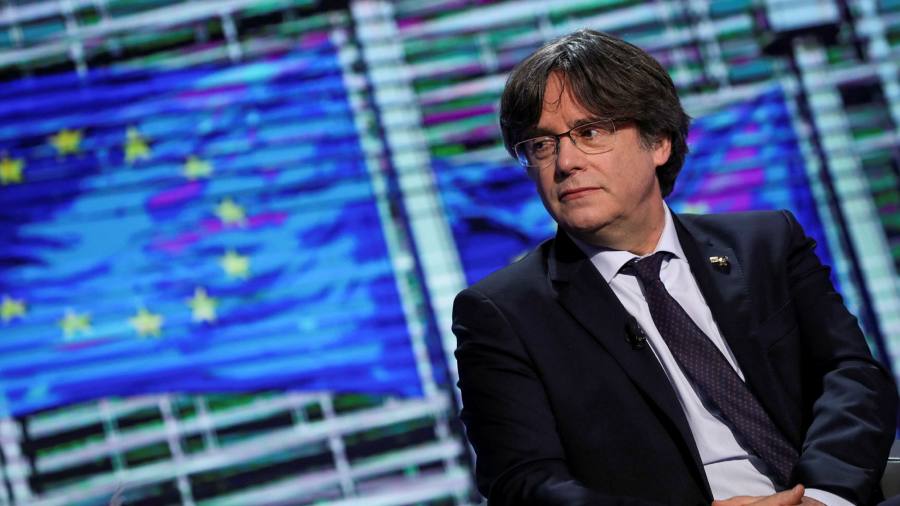[ad_1]
The European Parliament voted on Tuesday to lift the immunity of Carles Puigdemont, the former Catalan leader, and two other MEPs, allowing Spain to resume efforts to extradite him.
MEPs voted by 400 to 248 to remove the parliamentary immunity of Puigdemont, who fled to Belgium in 2017 rather than stand trial in Spain in the wake of an unconstitutional independence referendum.
There were similar majorities in the votes concerning the two other separatist MEPs, Toni ComÃn and Clara PonsatÃ, reflecting broad support for the move among conservatives, socialists and liberals, the chamber’s three main forces.
However, deputies affiliated with Podemos, the junior partner in Spain’s Socialist-led coalition, voted against lifting immunity.
The return of the MEPs to Spain remains far from certain since Spanish extradition requests have suffered defeats in German and Belgian courts.
The three separatists face charges of sedition and misuse of public funds related to the October 2017 referendum, when Puigdemont was the regional leader. The Catalan parliament subsequently issued a unilateral declaration of independence.
Nine other, more junior Catalan leaders were jailed for sedition in a Spanish supreme court ruling in October 2019.
Arancha González, Spain’s foreign minister, said Tuesday’s vote was a sign of MEPs’ respect for the rule of law in Spain, adding that “the problems of Catalonia will not be solved in Europe or by Europe; they have to be solved in Spainâ€.Â
But Puigdemont plans to appeal to the European Court of Justice. “We have lost our immunity but the European parliament has lost even more,†he told journalists after the vote. “It has also lost European democracy.â€
Puigdemont and ComÃn were elected as MEPs in 2019 and Ponsatà entered the European parliament to fill a vacant seat after Britain left the EU last year.
Tuesday’s vote could move the clock back to before December 2019, when an ECJ ruling allowed Puigdemont and ComÃn to take up their seats as MEPs and benefit from parliamentary immunity, frustrating extradition bids.
But even before that ruling, Madrid’s attempts to return Puigdemont to Spain had faltered, with a court in Germany — which the Catalan leader was visiting at the time — rebuffing an extradition request in July 2018.Â
Belgian courts also refused an extradition request in January this year for another former Catalan official, Lluis Puig.
Meanwhile, the Spanish government led by Prime Minister Pedro Sánchez is seeking to cultivate more co-operative relations with the authorities in Catalonia, where separatists increased their majority in elections last month — scoring above 50 per cent of the vote for the first time.
Sánchez’s minority administration has won several crucial parliamentary votes thanks to support from the Catalan Republican Left, which emerged as the biggest separatist party in last month’s election and is less confrontational towards Madrid than Puigdemont’s Together for Catalonia.Â
Sánchez’s government said this year that it planned a legislative review of the crime of sedition as well as the more serious offence of rebellion. It is also set to consider possible pardons for the nine Catalan separatists who have already been sentenced.
Podemos has gone further. Pablo Iglesias, the party’s leader, angered his coalition partners this year when he compared Puigdemont with republican political exiles from the 20th century dictatorship of General Francisco Franco.
[ad_2]
Source link





